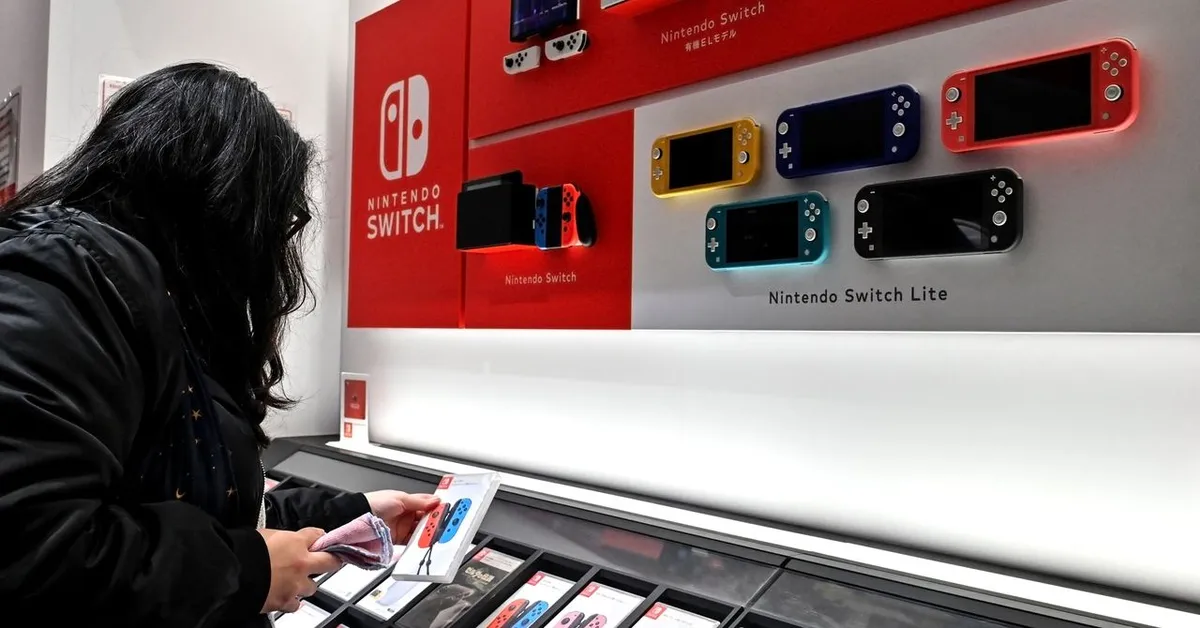
Nintendo has officially announced that preorders for the Nintendo Switch 2 will reopen next week, on April 24. The highly anticipated console will maintain its launch price of $450, despite recent tariff announcements from President Donald Trump that could potentially impact pricing across the gaming industry. The Mario Kart World Bundle, which includes both the console and the game, will continue to be available for $499.99, while the standalone game and Donkey Kong Bananza will retain their prices of $79.99 and $69.99, respectively.
In an official statement, Nintendo expressed its apologies for the delay in retail preorders, stating, “We hope this reduces some of the uncertainty our consumers may be experiencing.” This delay was originally announced on April 4, just two days after a reveal event for the Switch 2 in New York City. The company emphasized that the decision to pause preorders was made to evaluate the possible implications of the tariffs and changing market conditions.
While the Nintendo Switch 2 console will remain at its initial price, the company has indicated that accessory prices will increase due to these market changes. For example, the Pro controller's price has risen from $79.99 to $84.99, and the Joy-Con 2 will now retail at $94.99 instead of its previous price of $89.99. Additionally, the Dock Set will see a price increase from $109.99 to $119.99. Nintendo warned that further price adjustments may be necessary for other products in the future, depending on ongoing market dynamics.
On April 2, President Trump announced the implementation of “Liberation Day” tariffs, which include a baseline tariff of 10 percent applicable to all countries. Moreover, tariffs on Chinese goods have skyrocketed to 145 percent, prompting retaliatory tariffs from China on U.S. goods. This escalating situation has left many sectors, including the gaming industry, in a state of turmoil as they grapple with potential price hikes and market instability.
While electronics are currently exempt from these tariffs, the uncertainty surrounding future tariffs has created a climate of apprehension. Many industries are feeling the pressure, with rising consumer prices threatening to exacerbate financial difficulties that have already led to job cuts and layoffs in the gaming sector.
The U.S. and China are the largest gaming markets globally, and the imposition of tariffs will affect both nations differently. U.S. tariffs could lead to increased prices for American consumers on various gaming products, not just those from Nintendo. Analysts note that both Sony and Microsoft, despite not having immediate plans for new console releases, will also be impacted by these changes, as both companies rely heavily on Chinese manufacturing. For instance, Sony has already announced a 25 percent price increase for the PlayStation 5 in certain regions, which is likely a precursor to similar adjustments in the U.S. market.
While digital games may remain unaffected by these tariffs, the prices of physical games could see significant increases, depending on their country of manufacture. Nintendo produces many of its games in Japan, while Xbox may have some production in Mexico. Future tariff impositions could lead to higher costs for physical game prices, which might also indirectly influence digital game pricing. If retail prices rise dramatically, players might increasingly shift towards digital media, benefiting console platforms that rely on their digital storefronts for sales.
The gaming industry has faced significant job losses in recent years. While there were signs of recovery, the introduction of tariffs threatens to derail this progress, according to Daniel Ahmad, director of research and insights at Niko Partners. He stated that the corporate sentiment has abruptly shifted from a positive outlook to a more pessimistic one, which could hinder investment and hiring within the sector.
As the gaming community watches these developments closely, the future of console pricing, game availability, and job security remains uncertain, with the ongoing tariff situation poised to impact all aspects of the industry.